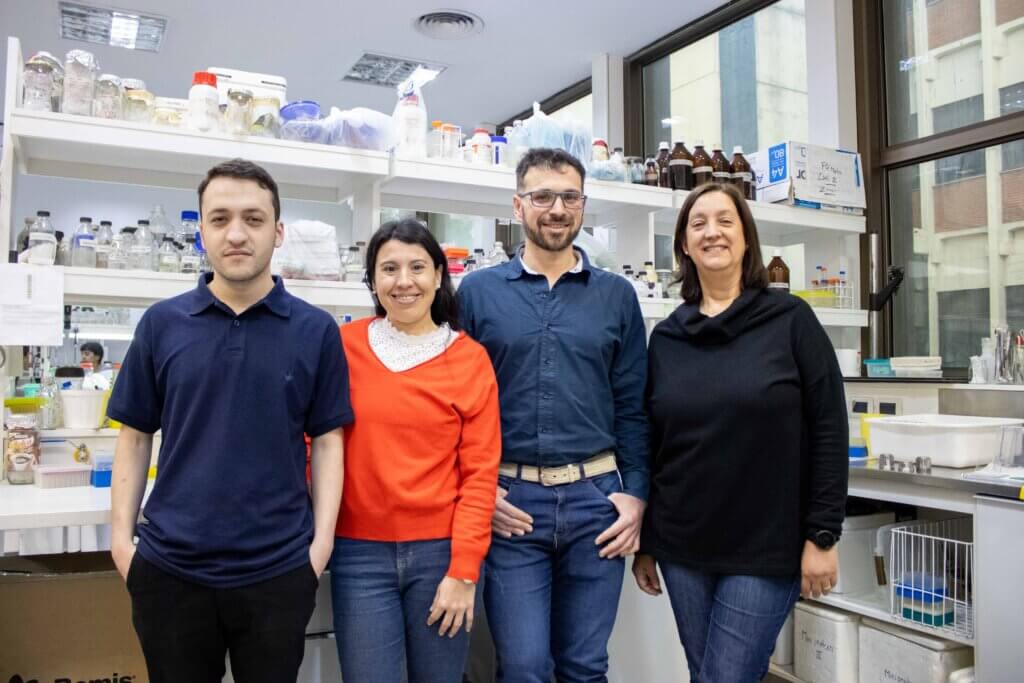Other Research
MOLECULAR PHYSIOLOGY OF CROPS
summary
Achieving higher production goals to adequately feed the growing world population in quality and quantity is a challenge that involves expanding the region of arable areas and facing climate change. Furthermore, the urgent need to increase food production worldwide is associated with improving food quality. Plants, as sessile organisms, are continually challenged by multiple factors such as environmental stress that generates a negative impact on most relevant crops worldwide. It is estimated that the global economic losses associated with the reduction of growth and biomass production are in the order of billions of dollars, so the identification of the molecular mechanisms by which plants respond to environmental stress is essential to develop strategies of resistance. To increase productivity, it is important to correctly identify the molecular mechanisms that limit it in situations of environmental stress. Although in recent decades much progress has been made in the knowledge of numerous physiological, metabolic processes and molecular mechanisms related to responses to environmental stress in plants, there are still many unidentified components related to productivity and the response to stress, especially in agronomically important crops. The biochemical and physiological function of a large proportion of genes involved in responses to environmental stress is not yet determined. In this context, the study of proteins with unknown function is crucial to understand their participation in the gene activation chain in stress situations. Today, genomic and post-genomic tools are available to address these studies on a global scale and contribute to designing strategies to detect new key components related to the integration of environmental stress and plant growth programs.

Email: zanor@ibr-conicet.gov.ar
research lines
Characterization of genes of unknown function related to plant productivity in unfavorable environments
It is estimated that between 20 and 40% of the genes present in sequenced eukaryotic organisms are proteins with no assigned function. The assignment of functions to a protein is based on the presence of detectable similarity between its sequence and that of functionally characterized proteins. However, even though a functional category can be assigned to a protein based on sequence homologies (for example: phosphatase, kinase, transcription factor), its biochemical and physiological function is partially or totally unknown. In the model organism Arabidopsis, about 5000 genes belong to this category and it is estimated that many of these proteins could be included in currently known metabolic pathways or gene networks. Consequently, since the role of many genes is not yet well established, it is of vital importance to characterize proteins with unknown functions in order to assign their location and roles in the gene activation chain in stress situations. Therefore, the project proposes to study the role in stress tolerance of a group of selected genes for which their functions are not yet established.
Comparative studies of gene expression after environmental stress in crops such as soybean, tomato and, Arabidopsis thaliana leaves demonstrated that although there are differences, many genes of both species are induced or repressed in a similar way. This suggests that these species have conserved response mechanisms. This observation allows us to think about transferring scientific results obtained using model plants to crops that can meet the growing demand for food.
Functional analysis of plant metabolism from a systems biology perspective
The main objective of this line of research is to understand the mechanisms of regulation of the metabolism of compounds that confer quality to species of horticultural interest using the tomato plant (Solanum lycopersicum) as a model. The tomatoes consumed in Argentina are of low organoleptic and nutritional quality, since they have been selected for other attributes such as size, shape and good post-harvest behavior for better marketing. However, consumers are increasingly demanding tomato fruits that have greater and better flavor and are high in vitamin compounds and antioxidants. This line of work aims to identify and evaluate the interaction of the metabolic constituents of a food such as tomatoes and human health to understand how the presence of bioactive compounds in a food is associated with diseases related to certain lifestyles. This type of study, whose approach is innovative and multidisciplinary, is key to the development of the nutraceutical products market, which has experienced maximum growth during the last decade and is estimated at 117 billion dollars worldwide.
PUBLICATIONS AND PATENTS
Sede CCT Rosario
Ocampo y Esmeralda, Predio CONICET-Rosario
2000 Rosario, Santa Fe, Argentina
Tel. 54-341-4237070 / 4237500 / 4237200
Sede Facultad de Ciencias Bioquímicas y Farmacéuticas
Universidad Nacional de Rosario - Suipacha 531
2000 Rosario, Santa Fe, Argentina
Tel. +54 341 4350596 / 4350661 / 4351235
🔬 El IBR suma 9 proyectos seleccionados en Investigación Orientada 2025 de @ProduccionSF y @CienciaSantaFe.
Biotecnología, salud y sostenibilidad para fortalecer el vínculo entre ciencia, innovación y desarrollo territorial.

